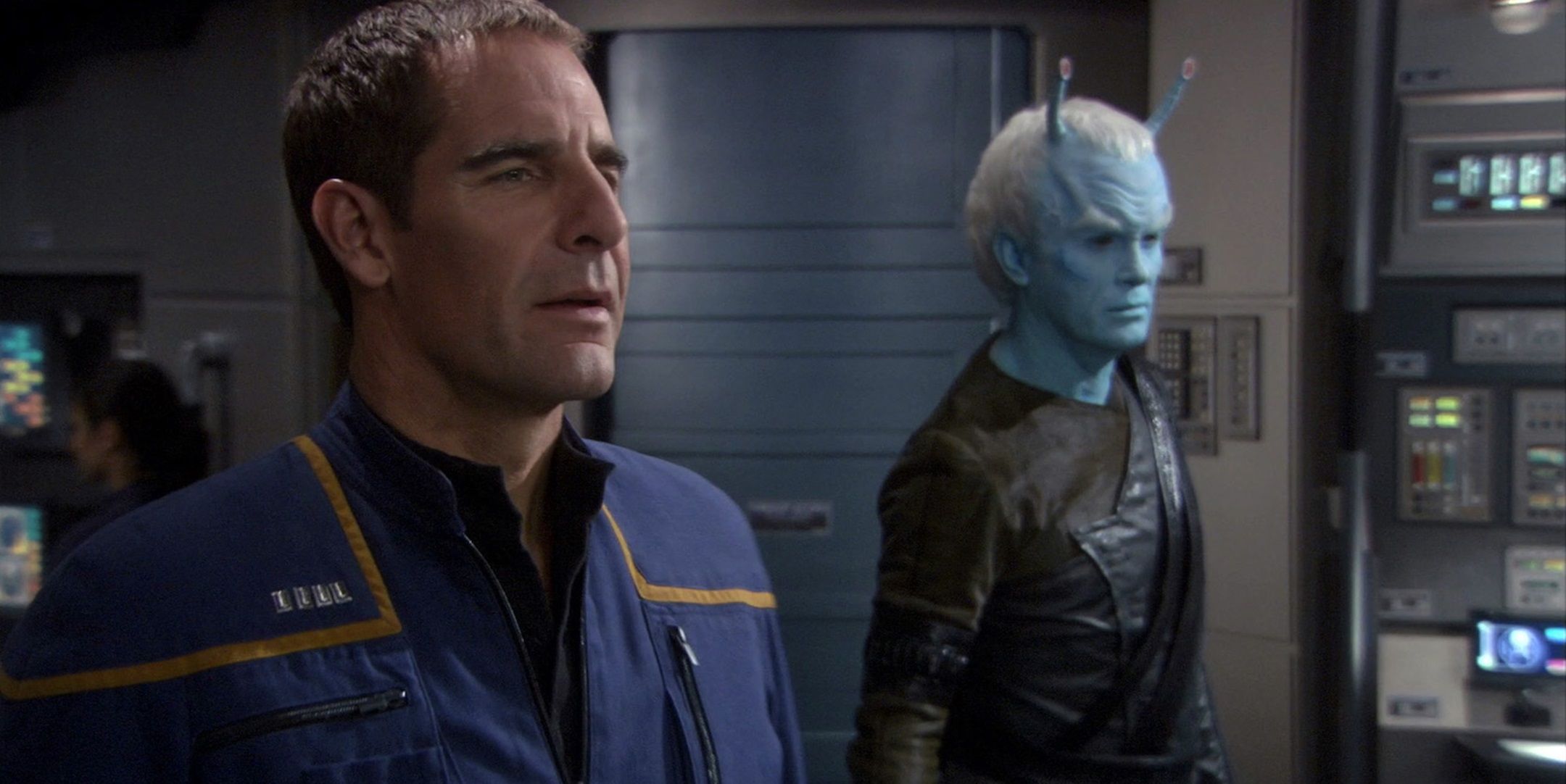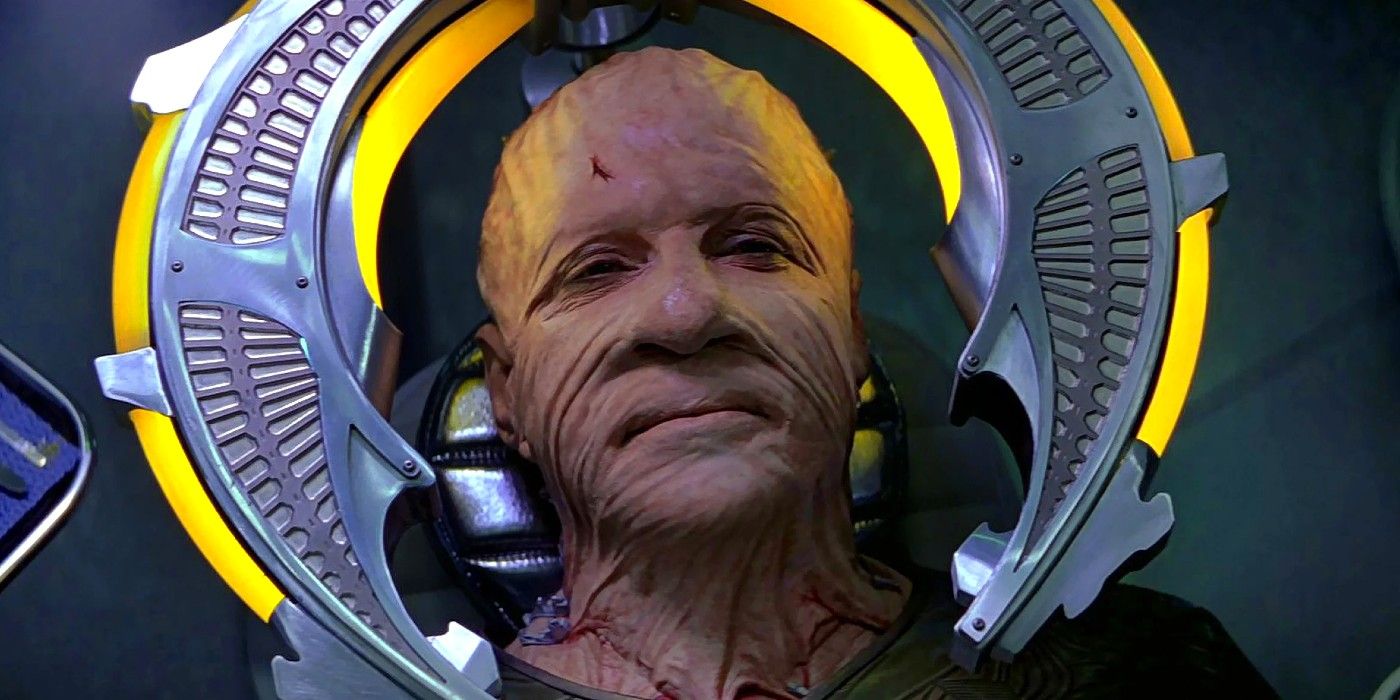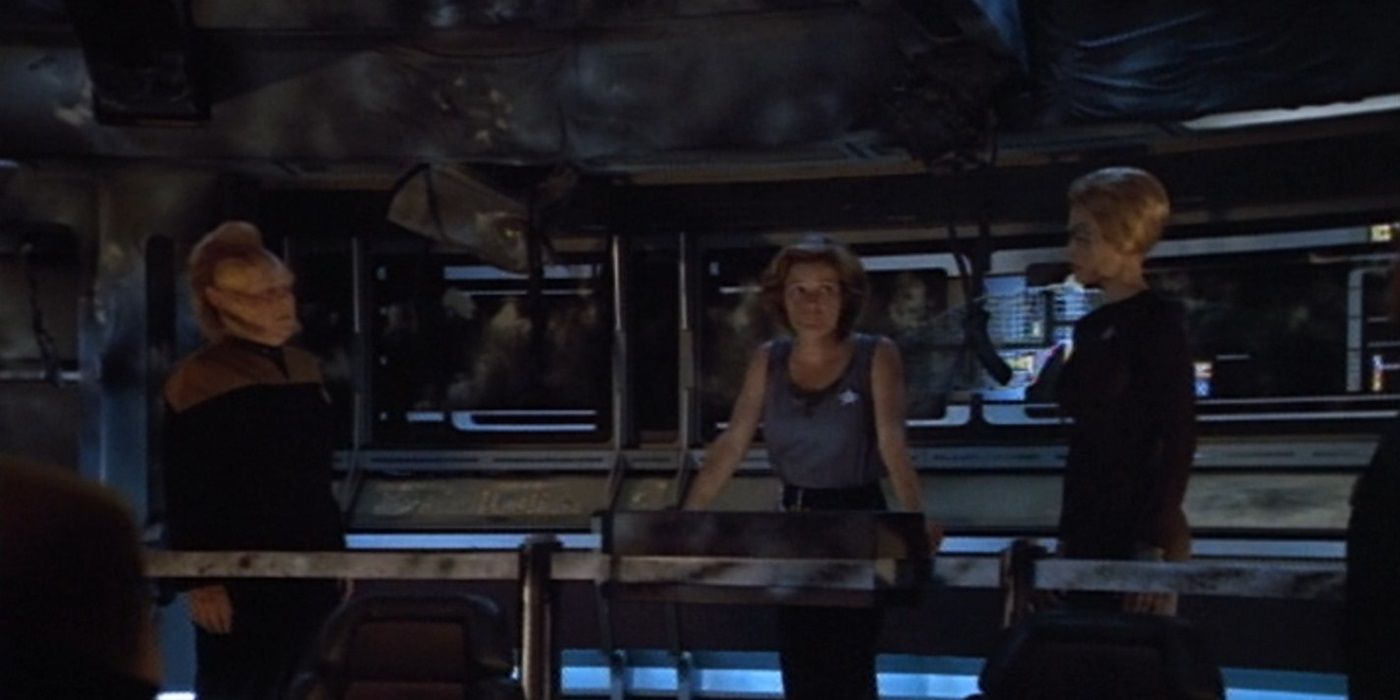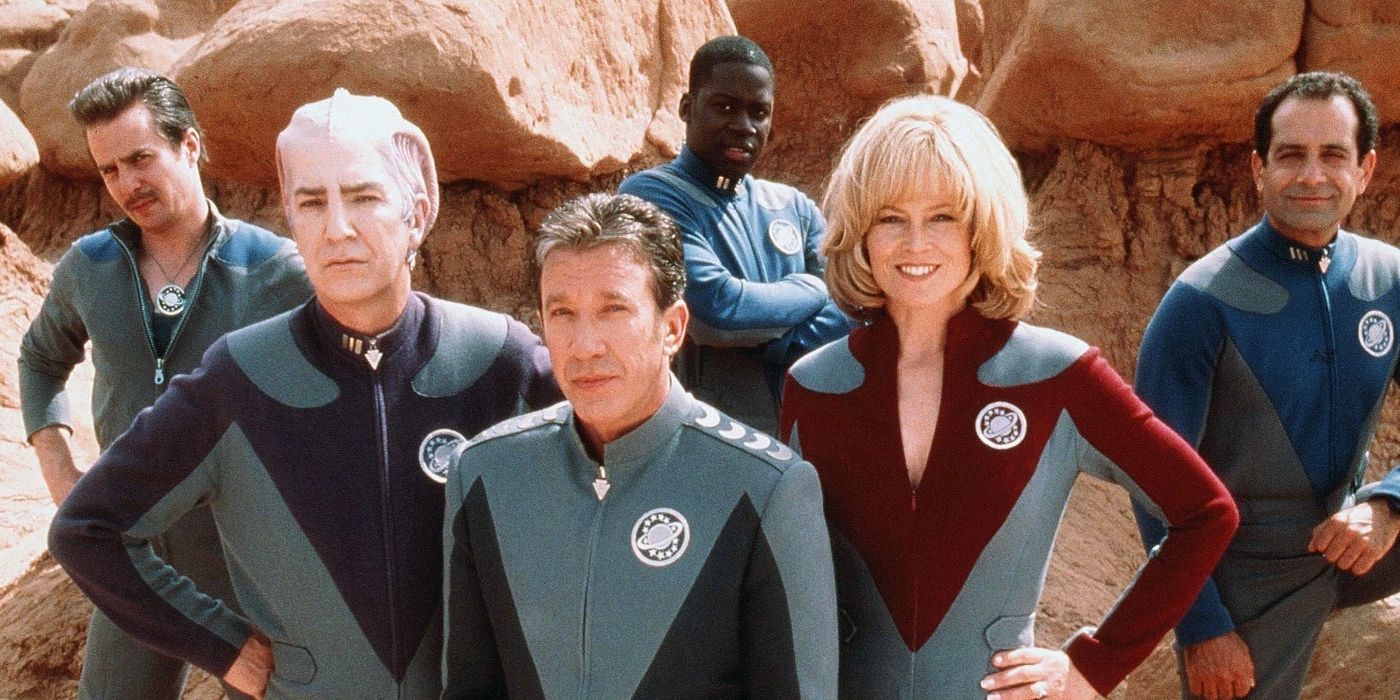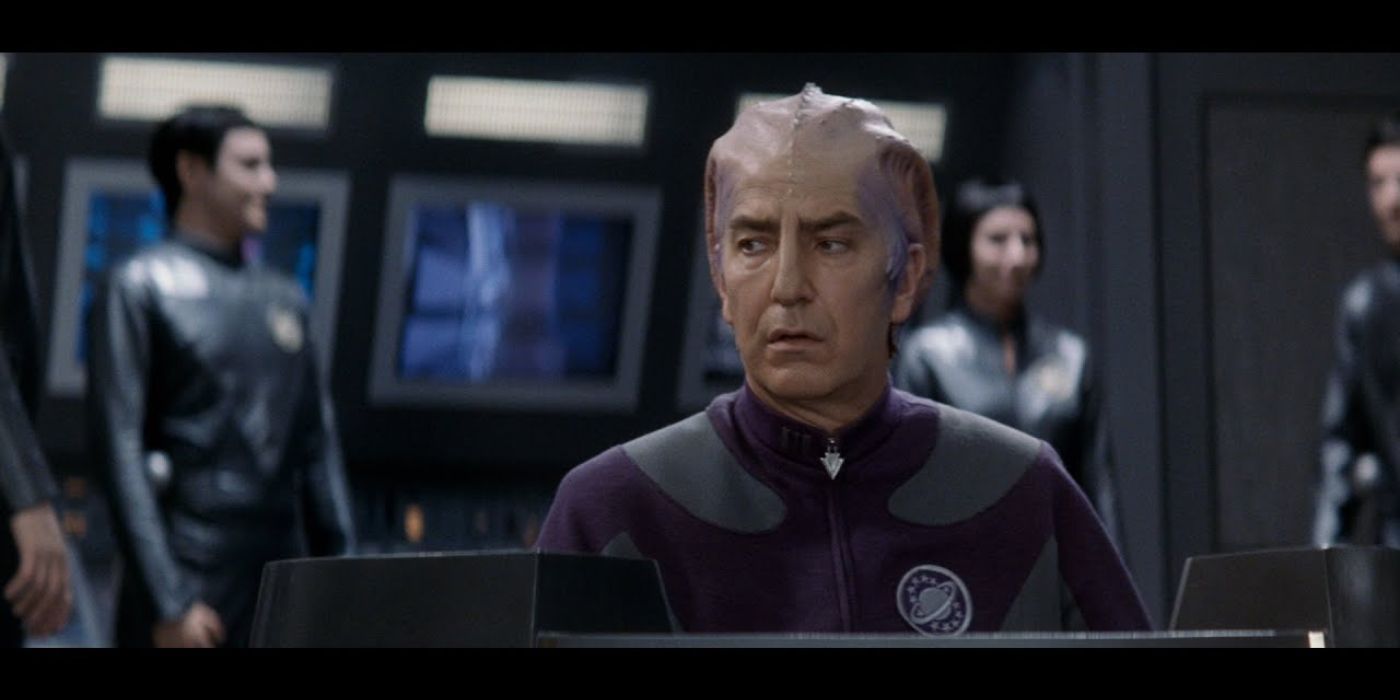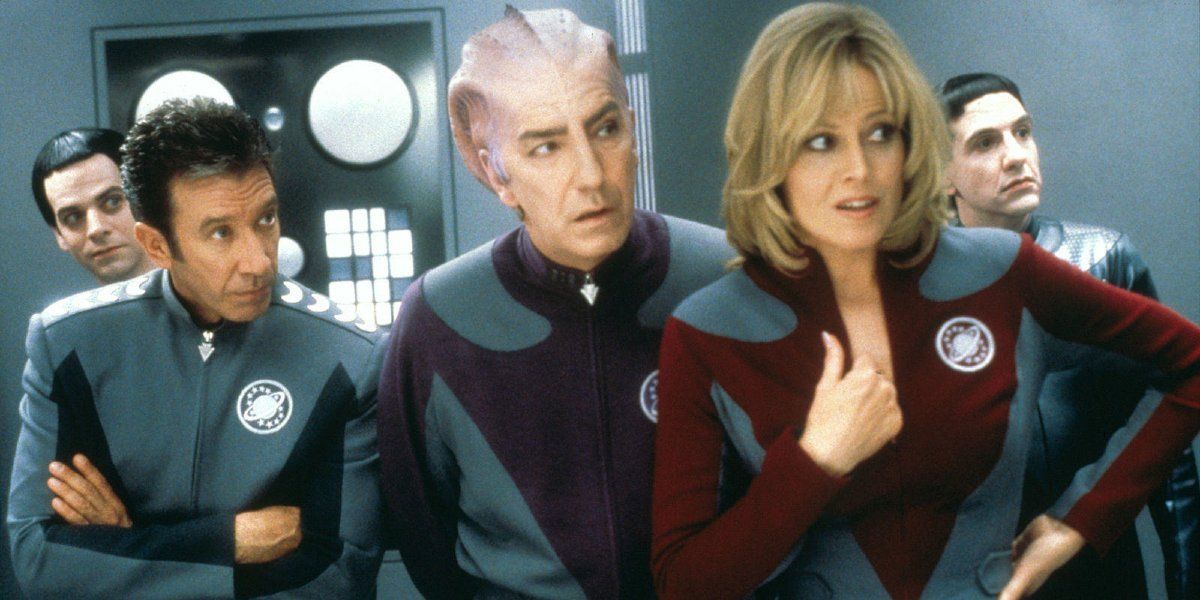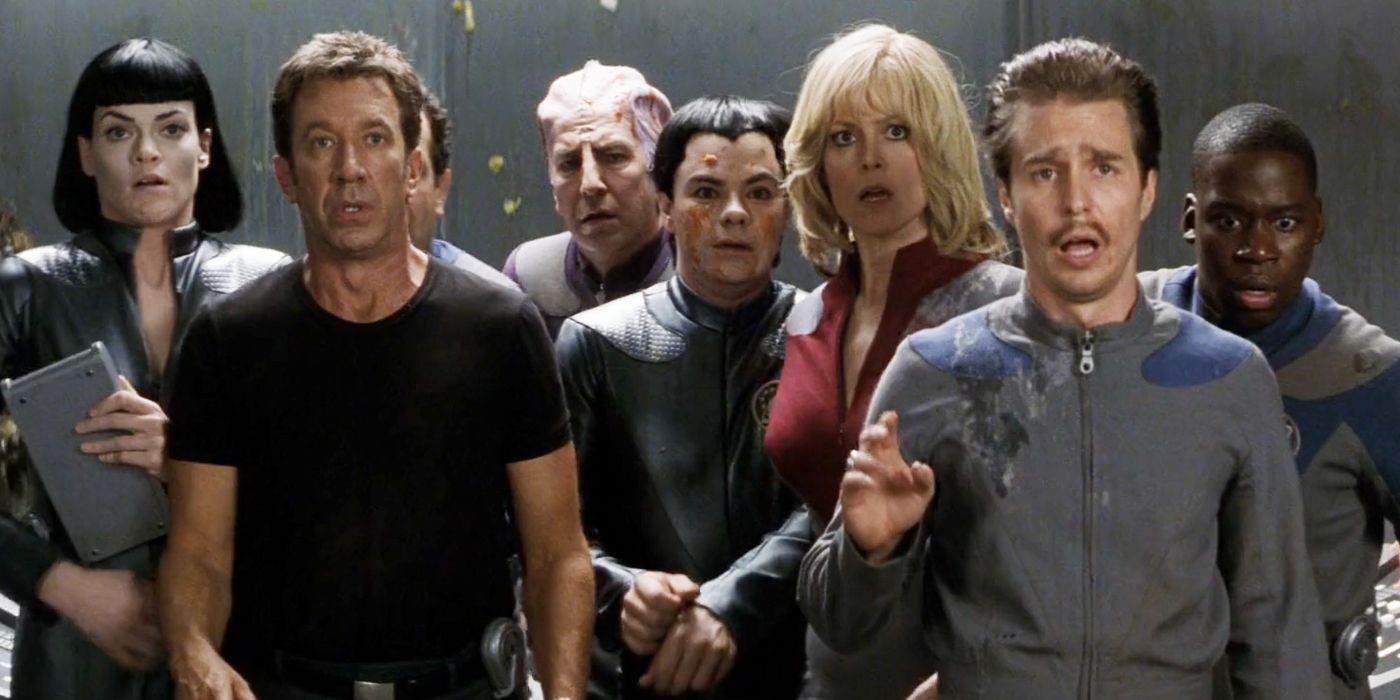Although the Star Trek franchise has existed for almost six decades, it has not always been as culturally ubiquitous as it is today. The Original Series, the franchise's first iteration, only lasted three seasons. After a short-lived animated series, the franchise did not exist in any manner for half a decade. Once Star Trek II: The Wrath of Khan and the spin-off series The Next Generation became much wider hits than The Original Series was, the franchise saw a huge period of success. However, when it hit another inevitable lull, the gap was filled by a parody film that used the now well-worn tropes of Star Trek to great effect: Galaxy Quest.
Galaxy Quest is the perfect parody movie, hitting at just the right time. The film features a superb cast and brilliantly funny writing to capture Star Trek's silliness while acknowledging what made the series great.
Star Trek Had a Bit of a Lull Period in the Late 1990s and Early 2000s
![Tom Hardy and Patrick Stewart looking at each other in Star Trek: Nemesis.]()
![Jonathan Archer (Scott Bakula) and Shran on the bridge from Star Trek Enterprise]()
![F. Murray Abraham is Ru'afo of the Son'a in Star Trek Insurrection]()
![Kate Mulgrew, Ethan Phillips and Jeri Ryan in Star Trek Voyager Year of Hell]()
The second Star Trek franchise lull period came in the middle of the 2000s, when the failure of the series Star Trek: Enterprise stopped the production of new series in the franchise for more than a decade. But at the turn of the century, just around the time Galaxy Quest was released, the writing was on the wall that the series was starting to run out of the steam it had been riding on since the end of the 1970s. What had once been a number of television series that continued to grow in budget and sophistication, building on what it had set up before to improve on both the complexity of the series themes and fixing previous mistakes, has started to become lost in a sea of cable television shows.
The Star Trek films of the era also saw a similar problem, with the latter films of The Next Generation's movie run being seen as lackluster and disappointing, ending notes on the character arcs of the beloved crew of the U.S.S. Enterprise. Star Trek: Insurrection, the second-to-last movie in the series, was met with a tepid response, seen as a dull and uneventful film that did not justify the cost of a movie ticket.
And Star Trek: Nemesis, the last Star Trek movie until J.J. Abrams rebooted the franchise in 2009, angered longtime fans with character changes that felt uninspired and the death of a beloved character, the android Data, which felt unearned. This left a perfect gap for another filmmaker to come in and capitalize on the well-worn tropes of the franchise, but in a fun new way.
Galaxy Quest Provided a Great Alternative to Star Trek in Theaters
![The cast of Galaxy Quest prepare for a mission in Galaxy Quest.]()
![Alan Rickman as Alexander Dane in Galaxy Quest]()
![Jason (Tim Allen), Gwen (Sigourney Weaver) and Alexander (Alan Rickman) stand together on a spaceship in Galaxy Quest]()
![The Thermians look shocked in Galaxy Quest.]()
Dean Parisot's Galaxy Quest perfectly parodies not just the rhythms of the Star Trek television series and original films, but the personalities of the stars of those series and the cultures of fandom that spawned out of media juggernauts like Star Trek. The movie stars Tim Allen, Sigourney Weaver, Alan Rickman, Tony Shalhoub, Daryl Mitchell and Sam Rockwell as the cast of a fictional television series called Galaxy Quest.
The show was popular in the 1980s but has since become a show that only the biggest science fiction fans care about. When a group of actual aliens approach the cast at a convention, believing that the broadcasts of the television series they picked up in outer space are real and thinking the cast are the intergalactic heroes they portrayed on TV, the actors must truly become their old characters to save the world.
What makes the film so good is that it is not only a fantastic parody of Star Trek itself, making excellent jokes out of the technobabble fake science and ridiculously sexualized female characters that punctuate classic science fiction television, but a parody of the actors whose careers were defined by the science fiction fandoms that love their work. While Tim Allen's character, clearly modeled after William Shatner, loves the constant limelight of going to comic book conventions and being cheered by longtime fans of the show, the rest of the cast resents that they are only known for being the people from Galaxy Quest. Alan Rickman's character is the best avatar of this, acting as a parody of both Leonard Nimoy and Patrick Stewart by being the Shakespearean-trained actor who hates that no one took him seriously after playing an alien on TV.
These observations are considered so accurate that even Star Trek cast members thought they were realistic to their experiences. This is what elevates the film to be a nuanced look at what it means to be a part of a huge franchise like Star Trek.

